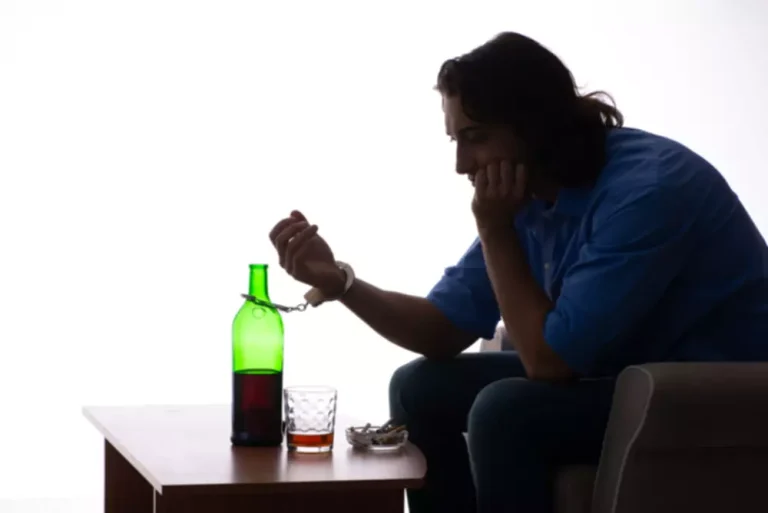Sober living
Intermittent explosive disorder Wikipedia

Furthermore, the cost of addressing the consequences of violent behavior, such as medical treatments for victims and providing support services, can be a significant burden on public resources. Our residents have found relief by addressing the root causes of alcoholic rage syndrome and seeking appropriate treatment. Mood stabilizers, antidepressants, or anti-anxiety medications can all help to regulate and control negative emotions, during both detox and treatment for anger management and alcohol addiction. After detox, individuals suffering from co-occurring disorders often proceed directly into a residential treatment program where structured around-the-clock programming can help to manage both disorders. The family members and loved ones of people with IED often experience stress, depression and isolation. It’s important to take care of your mental health and seek help if you’re experiencing these symptoms.

Alcohol use disorder
- The individuals who had higher mental rigidity had lower empathy and perception of the severity of IPV.
- Now is the time to pursue those things you’ve always wanted to learn.
- According to the National Council on Alcoholism and Drug Dependence (NCADD) alcohol more so than any other substance is a contributing factor in cases of rape, murder, spousal and child abuse, and assault.
- Once you have distanced yourself and been consistent in showing them that you will not put up with their bad behavior, you can support them from afar by telling them you will help them in their recovery.
- Excessive alcohol consumption impairs judgment and lowers inhibitions, leading to impulsive and aggressive behavior.
- People with intermittent explosive disorder have a low tolerance for frustration and adversity.
One of the topics usually revolves around emotion regulation and anger management. An individual who, when in his or her alcohol addiction, was prone to angry outbursts or rages may have had existing anger management issues or an explosive personality. In recovery, it is important to address that propensity https://ecosoberhouse.com/ towards violence and learn effective coping skills that help change the tendency toward anger. When it comes to the relationship between spouses, alcohol can provoke aggressive or violent behavior toward the spouse, especially in couples where both partners struggle with alcohol use disorder.
IED behavioral outbursts
After much consideration, he eventually joined an alcohol treatment program as I helped him grieve his wounds and manage his anger. Mental rigidity and alcohol consumption have been explored as contributing to domestic violence. One such study included 136 men with a history of intimate partner violence (IPV) (Estruch, 2017).
Anger Management and Alcohol Addiction
Let them know you are concerned about the pattern you have noticed and how they may benefit from a recovery program. They may not be aware of the newer and more convenient options that exist today. Examples of root causes can be relationship problems, work difficulties, feelings of low self-esteem, alcoholic rage syndrome unresolved trauma, or other issues that feel out of your control and make you susceptible to lashing out. Reframe supports you in reducing alcohol consumption and enhancing your well-being. You’ll meet millions of fellow Reframers in our 24/7 Forum chat and daily Zoom check-in meetings.
Charitable Care & Financial Assistance
Alcoholic Rage Syndrome is a phenomenon characterized by intense and unpredictable outbursts of anger and aggression in individuals who consume alcohol excessively. This condition, also referred to as “alcohol-induced rage,” is a deeply concerning issue that can have severe repercussions on both the affected individual and their relationships. As well as being linked to aggression (and making it more likely you could be on the receiving end), binge drinking harms your physical and mental health. One way to have a bit less is to alternate alcoholic drinks with a soft drink or water.
Literature from PubMed Central indicates that alcohol-related aggression often occurs among individuals who engage in chronic alcohol consumption and have become dependent. When dealing with alcoholic rage syndrome, it’s crucial to recognize the signs and seek help for yourself or your loved one. You don’t need to navigate this difficult journey alone – compassionate support is available. Understanding why are alcoholics so mean to the ones they love is the first step in addressing the broader issue of alcoholism. The Ohana Addiction Treatment Center focuses on healing the individual and helping our clients mend their relationships.
What is considered 1 drink?
- Because of this, it’s essential to seek medical help as soon as possible if you feel you or a family member has intermittent explosive disorder.
- One such study included 136 men with a history of intimate partner violence (IPV) (Estruch, 2017).
- Mood stabilizers, antidepressants, or anti-anxiety medications can all help to regulate and control negative emotions, during both detox and treatment for anger management and alcohol addiction.
- Support groups such as Alcoholics Anonymous (AA) and Self-Management And Recovery Training (SMART) are open to anyone with a substance use disorder.
This is of particular concern when you’re taking certain medications that also depress the brain’s function. Alcohol use disorder can include periods of being drunk (alcohol intoxication) and symptoms of withdrawal. These programs organize your treatment session based on your schedule. The goal of outpatient treatment is to provide therapy, education, and support in a flexible environment. If you are close to someone who experiences alcohol-induced anger, it’s important to get help and support. Instead, the following symptoms can develop slowly over time, especially during the first year of recovery.
To curb alcohol-fueled rage, it helps to know how you respond to drinking. And you may need to take steps to stop or limit alcohol consumption. Those expectations can also arise from what we’ve learned about alcohol from family members and peers.

Mayo Clinic is a nonprofit organization and proceeds from Web advertising help support our mission. Mayo Clinic does not endorse any of the third party products and services advertised. They are peer-led organizations dedicated to helping each other remain sober. Support groups can be the first step towards recovery or part of a long-term aftercare plan. Some people truly experience sobriety as a kind of death and have to accept the loss and learn and grow from the experience before they can move on.

Talking with someone about what you’re experiencing can help you discover why anger has become such a large part of your life. In addition, you can visit The National Coalition Against Domestic Violence (NCADV), a domestic violence prevention advocacy group with a list of resources for relationship abuse help. However, it can be important for your mental health and overall well-being to prioritize your own needs when angry interactions get to be too much. In these moments, consider setting clear boundaries and disengaging. According to one set of diagnostic criteria for IED in the DSM-5, the aggressive behavior must occur twice weekly for 3 months on average.
